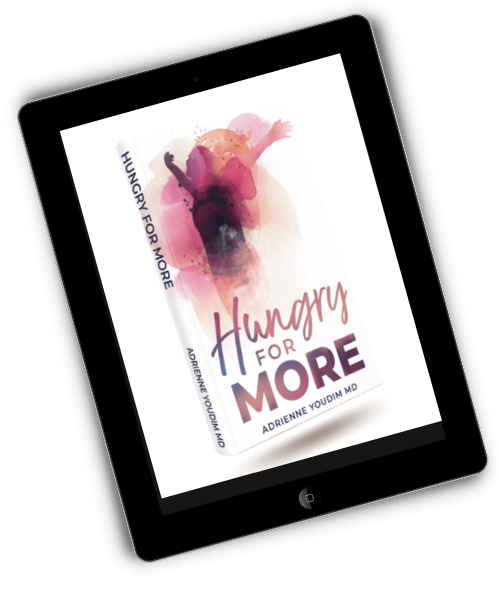I often talk with my patients and on my blog about what I call the “mushy-gushy stuff.” The right mindset. Self-compassion. Nourishing your soul.
All of these things are absolutely important for real, transformative change, but there comes a point where people need practical advice as well as the theoretical, mushy-gushy stuff. That’s why I’ve put together a list of 10 practical strategies that you can use to help on your weight loss journey.
1. Reestablish Your Routine
Over the past 18 months, our routines have been replaced with open-ended, work-from-home schedules requiring little to no specific time commitments or set lunch periods. Our eating and sleeping schedules have been interrupted, our workday has no clear beginning or end, and things we used to schedule time for, like getting to the gym, have been pushed aside as “things we can do later.”
But without a routine, habit change and weight loss are impossible. Reestablish a routine so that you can put in place good habits to find the success you want. Otherwise, you’ll just keep waiting for “later.”
2. Create an Environment for Success
If your home is full of tempting foods that you find hard to resist, then you are not operating in an environment for success. If you don’t have an environment that is set up for proper choices, then you have no choice but to make the wrong choice. Remove those temptations from your home and stock your pantry with items that make it easy to make good choices.
3. Don’t Skip Meals
Though this may be a little controversial, I do not recommend skipping meals. In my experience, people who skip meals become so hungry that by the time they get to lunch or dinner, nothing they eat will satiate them. They’re giving up a few eggs at 70 calories each, not huge calorie savings, and then overeating at their first meal by way more than what they saved by skipping breakfast. Eating mindfully throughout the day will most likely serve you better.
4. Eat-in Terms of Abundance, Not Restriction
Restriction makes us think of deprivation and fear, and we sort of feel like we’re missing out on good stuff, but abundance makes us feel good like there’s plenty of availability and no need to worry about what we’re missing out on. So instead of restricting what you eat, think of it in terms of abundance: eat so much of what serves you that there is less room for that which does not. Eat plenty of veggies and protein so that you have less room for other, less nutritious items.
5. Eat Plenty of Protein
Protein is very satiating. Eating just 20 to 30 grams of protein has been shown to suppress hunger hormones all day. Plus, protein is great for not only weight loss, but weight management because it helps preserve muscle mass.
6. Use Meal Replacements Wisely
Although there are some meal replacements out there that are full of sugars and not worth your time, replacing breakfast or your afternoon snack with a high-quality protein bar or shake can help to lose weight or maintain weight loss. Just be sure not to overdo the shakes – adding things like avocado, coconut milk, etc. can really boost the calories. Mixing in water and veggies instead will help you get the protein from the shake as well as nutrients from the veggies, without that extra calorie boost.
7. Be Mindful of Your Thirst
While I don’t recommend any specific amount of water for the day, you need to be adequately hydrated. You should be needing to use the restroom every two to three hours, and when you go, it should be clear-ish.
This is important not only because our bodies need water for so many functions, but because often our hunger and thirst pathways get mixed up. If you think you’re hungry, I recommend starting with a bog glass of water to see if you still feel that way; you may find out that you were just thirsty.
8. Watch Caloric Drinks
Most people know that sodas are bad for you, but how many people have considered the calories in their favorite juices, their coffee beverages, or in their alcoholic beverages? All juices are high in sugar but lack the fiber, vitamins, and minerals you get from eating the fruit. When you order a coffee, do you drink it black, or do you add milk and a pump of sugary-sweet caramel syrup? Alcohol itself has lots of calories, but then we mix other things into it as well. Keeping an eye on the beverages you consume is important when trying to make healthy choices.
9. Get Enough Quality Sleep
Sleep is not only important for mood and cognition, but also for your metabolic health. Plus, sleep deprivation will result in an increase in hunger hormones, making you physiologically feel hungrier. Getting enough uninterrupted sleep will help keep your metabolism and hunger hormones under control.
10. Move Your Body
Although exercise and weight loss are not as linked as everyone seems to believe, moving your body is still important for weight management because it helps us maintain muscle mass and regulate our metabolisms. There is also one specific type of exercise which does target fat: high-intensity interval training (HIIT). To do HIIT, you perform short intervals of hard exercise to reach a target heart rate, followed by a period of recovery. This has been shown to specifically target visceral fat.
So there you have it, 10 practical tips for losing weight. Implementing these tips will not result in magic, overnight weight loss, but they will help you on your journey to becoming healthier if you’re willing to stick to them and make positive, healthy choices.


